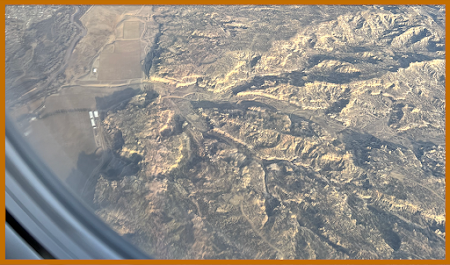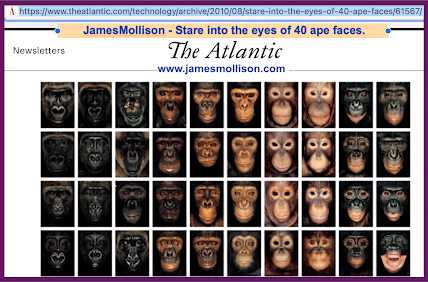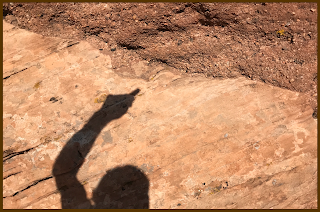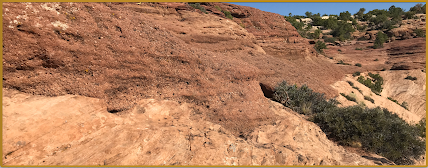___________________________________________________________
Chapter 6, Buddha Science, Physical Science
(edited July 29)
___________________________________________________________
Over the decades I've lost my enthusiasm for traveling physicist-philosopher speakers, especially the type that soften up their audience with fables about matter being 99.999999999% "nothing" - then go on to claim "human consciousness" is beyond the reach of biologists and neuroscientists and that it requires entertaining cosmic sources, then spend endless hours discussing things that are frankly outside the realm of "science" and unprovable one way or another.
I prefer keeping to the basics that we can understand reasonably well, while recognizing entertaining speculation for the mythologizing that it is.

___________________________________________________________
Chapter 6a, Physical Science, It’s all relative
¶a1 “… one of the early lessons instructors often teach in basic science courses is that trying to apply common sense to scientific study introduce bias into the results.
¶a3 “… now it’s time to tackle the other two recent and revolutionary discoveries of science, relativity theory and quantum mechanics, …”
¶a27 “… All of this may contradict common sense, but the problem is not what the world does. It is the concepts we form around it. The universe is the way it is, whether we like it or not. My basic scientific training was correct - let go of common sense. The Buddha would approve.
Common sense is only the boat that allows us to deal with the day-to-day world. To gain a deeper understanding of the world, we must leave that boat at the shore.”
That does sound very romantics, but let’s not forget we live on this shore: four dimensions and bodies that confine us - not in the netherworld of quantum reality and Schrödinger’s Cat.
A land that only our imagination can visit. Here's an example of what we choose to be present to, limiting us. The details and discrepancies of the quantum world matter very much to the rarified world of experts with their bombs and nuclear accelerators and reactors and what not.
But there's something resoundingly disingenuously artificial about transforming quantum weirdness - that's happen down at the limits of tiny, where matter and pure energy mingle, (having no bearing on our lives beyond creating the foundation for atoms and molecules and the laws of physics) - into a tool of psychological manipulation.
Sure there's a quantum echo in the fabric of our lives, but it's not enough to justify tricking our modern minds into imagining matter is 99.999999999% nothing; or that Schrödinger’s cat creates some existential crisis for us and our senses,; or that "The End of Reality" is nigh, because some mathematicians' formulas turn to mush, and other such fancies.
It's taking metaphor too far and blinds us, as the current state of global society and its affairs attests to.
___________________________________________________________
Chapter 6b, Physical Science, Buddha meet Shrödinger’s Cat in a Bar

¶b2 “At the broadest level, the world of quantum physics show us two very distinct levels of reality - that of the day-to-day observations where things seem definable and solid, and a reality of undefined potential, where individual things do not exist, and even the ideas of space and time are only illusions*. Once again, this is a realm that we can only try to understand by forming concepts, (that simply allow a glimpse of this reality.)
“… This quantum Reality underlies and is included in everything we know, measure, understand and experience. …”
Right. At the level of the absolute tiniest of tiny, right at the boundary of matter and free energy. Shouldn’t we expect things to be very strange down there?
The exact size of objects in the Quantum Realm is unclear, but it's shown that reaching it requires characters to shrink smaller than a proton, which has a diameter around 1.7/10¹⁵ meters. That's around 10 million times smaller than the smallest virus.
(medium.com)
¶b3 (Introducing Erwin Schrödinger and early days of physics., … ¶4 Max Planck … ¶5 quantum physics, the mystery of light, ¶6 effect of heat on metal, discovering quantized electrons and photons, waves particles, ¶9 superposition, quantum computers, ¶11 Schrödinger’s Cat makes its dramatic obligatory entrance.
Schrödinger’s Cat consists of a few imaginary atomic particles, there’s never been a cat, and atomic covalence shells are anything but "empty space."
Scale matters!
Quantum Weirdness makes for great mind-experiments and storytelling, but not so much for constructive clarification of our fundamental human questions and condition.
If you’re not an expert, it’s all mind candy and putty for your preconceptions.
¶b12 “… a good description of the Buddhist view of two levels of Reality. Non-dual a state of unlimited and formless potential, is collapsed by our concerns into the dual world that we experience. …“
¶b13 “… entanglement… that pairs of particles can act as a system . . .”
¶b17 “There is no mathematical reason that time needs to only move forward, but probability theory strongly points to a tendency . . .? ¶19 Why does time always move forward? After all the underlying laws of physics work the same forward or backward in time. …”
For me, this is an example of what it means to get lost within the mindscape.
It’s a mathematical challenge, a mental game, nothing more.
From its inception this universe has done nothing but move forward and expand. How could time do any differently then move forward, even if the speed isn’t constant?
Reversing course can only happen once the cosmic pulse totally expends itself and the universe starts imploding. If there's anything to implode. Even then, to say that means time will then be running backwards is a guess, it’s not like the spin of atoms will suddenly reverse. If anything atoms would sort of dissolve and time would end altogether, or?
¶b22 “… Higgs boson, … gravity waves, … ¶24 Buddha Science, no beginning no end, … Big Bang, … ¶24 Something from nothing, … ¶26 dark matter and energy, …¶27 David Bohm, …”
¶b28 “Even though the two fingers, science and Buddha Science, may be pointing toward a common view of what our universe is and the basic building blocks that underlie it, we need not go soaring into the universe or shrink down to subatomic size to find mystery. One of the most profound mysteries awaits: that of life itself. Trying to sort out the distinction between matter and energy and mass, time and space is one thing, but how do we understand life? What is life, exactly? How did it come about, and how did it become what it is today? In the next chapter, we will begin pointing our finger toward the mystery we call life.
Don’t let my short shrift mislead. This was an interesting chapter that did a good job of covering a lot of bases and it’s worth a focused read.
Thing is, with me, I started earnestly learning about this history of physics & quantum philosophy and various lines of arguments during the seventies.
Since then geology and biology and astronomy have kept regularly blowing us away and increasing our understanding in amazing ways. But the philosophical physics end of it, feels like it’s been stuck dancing around the same old May Pole.
Instead of debates that are important to understanding ourselves and what we’re doing to our own life support systems, the brainiacs are debating the End of Time and Reality because some complex mathematical formulas break down, meaning they can’t figure out what’s inside the tiniest crevice of the tiniest particle, which isn’t even a particle, it’s a smug of energy spinning at crazy speeds.
All the while we haven’t developed the common sense to recognize and slow down our own self destructive tendencies, nor how to nurture each other, let alone this planet that sustains us, and that we depend on for everything.
___________________________________________________________
I thank Steve Daut for writing out these concepts and allowing me to share them in this virtual discussion with his book. I encourage you to read his complete book.
Buddha Science, ©2016, For a copy contact Steve Daut:
This is another Cc's Student's Workbook, of sorts,
meaning a little repetition is to be expected,
honing concepts and descriptions.
Offering food for thought.
Is there anybody out there?
citizenschallenge at gmail















